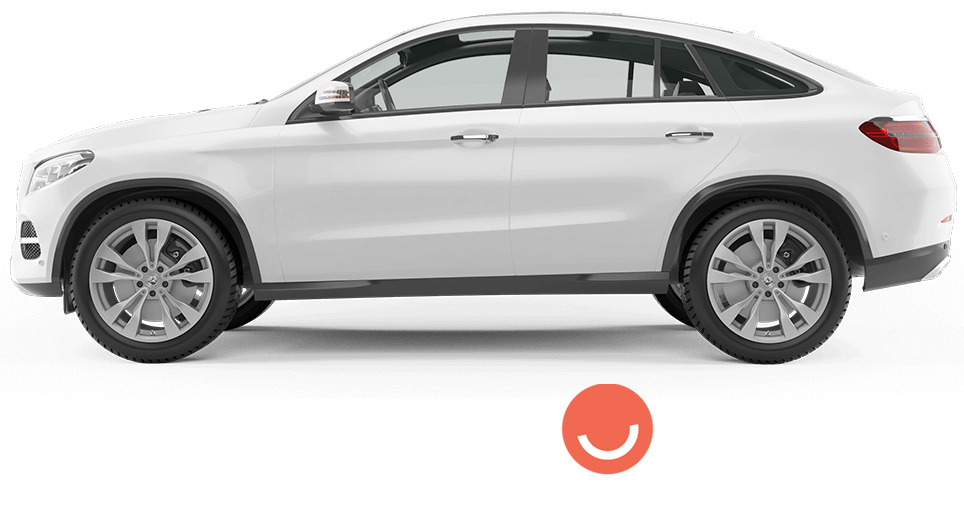How car finance works through Autedia
Types of Car Finance Explained!
What are the different types of car finance explained?
Besides a house, buying a car is likely one of your most significant purchases. With that in mind, it’s essential to make sure you can manage the cost. That’s where car finance comes in!
Not many people have the funds to buy the car outright and instead opt to pay for a vehicle on finance, meaning you can buy your vehicle in monthly payments.
Consider the amount you can afford to repay monthly before even looking at the types of car finance. Add up your monthly outgoings and make sure you can afford the car repayments!
If you’re confident, you can read on to discover how different types of car finance deals work.
Why should you choose Autedia for your car finance?
Car Finance Calculator
| Total cost of credit | 2,125.46 |
|---|---|
| Total repayment | 8,625.46 |
| 60 monthly payments of | £14376 |
Rates from 8.9% APR: the exact rate you will be offered will be based on your circumstances, subject to status.
Representative example: borrowing £6,500 over 5 years with a representative APR of 19.9%, an annual interest rate of 19.9% (Fixed) and a deposit of £0.00, the amount payable would be £143.76 per month, with a total cost of credit of £2125.46 and a total amount payable of £8625.46.
How Does Car Finance Work?
Car Finance is pretty general and can apply to various contract agreements. Generally, it means buying a car over time instead of paying it upfront!
People usually buy a car on finance using one of the following types of car finance:
For most car purchases, there are two types of car finance: Personal Contract Purchase (PCP) and Hire Purchase (HP).
Occasionally cars are bought on a Personal Unsecured Loan or Vehicle Lease.
Your monthly repayments will depend on the type of car finance you go for and your choice of car. Would you believe monthly payments are more for a Ferrari than a Corsa?
Apart from the car’s value, your monthly payment will depend on the time the agreement is for and what deal you’ve gone for, as each car finance type will have a different monthly fee.
Check your credit score out early because it can significantly impact the type of car finance agreement and interest rates available to you.
Hire Purchase (HP) Meaning
You can probably already guess how a Hire Purchase agreement works. With this type of car finance, you hire until you’ve made all your fixed monthly payments and then own the vehicle outright.
HP is the go-to car finance for buying a used car, and it’s considered a sensible approach. You can pay a deposit or trade in your old car to reduce your fixed monthly payments.
The car’s legal ownership will pass over to you at the end of the finance contract once you make the final payment!
You also can pay off the outstanding finance at any time by requesting a settlement figure from the lender.
What Are the Pros of Hire Purchase?
Here are the benefits of this type of car finance explained:
- You can drive the car as much as you want! No need to worry about penalties for exceeding mileage limits because you own the vehicle outright at the end of the agreement.
- An HP finance deal is the most used car finance option and is quick to arrange.
- If you’ve paid half of what you owe back, you can opt for a Voluntary Termination (VT), which means you can return the car and stop the payments. You won’t have any vehicle ownership – but it’s good to know you’re not stuck if you encounter financial difficulties.
- Fixed payments, usually over 3-5 years, means that you predict your outgoings each month! Making it a lot easier to stick to a budget.
What Are the Cons of Hire Purchase?
This type of car finance is not suitable for everyone:
- The monthly payments for HP are higher than other car finance types, such as PCP. That’s because you are paying off the car’s total value!
- You’re essentially borrowing the money secured against the car. The lender could repossess the vehicle if you don’t meet your monthly repayments.
- Failing to make the repayments can negatively impact your credit score: don’t sign up for it if you doubt keeping up the payments!
How Do the Numbers Work on this Type of Contract?
Here’s an example of how a car HP agreement might look:
Emma earns a decent wage and wants to buy a nice car, costing £10,000 through Hire Purchase.
The agreement lasts for four years (48 months). Emma has some savings and decides to put down a £1000 deposit.
With an APR of 7.9%, she will pay £219 monthly for four years and then own the car! In total, she’ll pay around £1525.92 in interest.
| Car value | £10,000 |
|---|---|
| Deposit | £1000 |
| Amount to finance | £9,000 |
| APR | 7.9% |
| Total repayable | £11,525 |
| Term | 48 months |
| Monthly repayment | £219 |
| Car owned at the end of the agreement? | Yes |
My monthly budget is
Rates from 8.9% APR. Representative APR 19.9%
What is a Conditional Sale (CS)?
A conditional sale (a CS) is the same as a Hire Purchase agreement! The only difference is that you will automatically own your car after payment of the total finance. Depending on your contract, a conditional sale might have a balloon payment at the end of the agreement.
Personal Contract Purchase (PCP) Meaning
PCP finance has become a popular choice for buying used cars type and remains the favourite option for purchasing brand-new and approved used cars.
PCP isn’t too different from HP. Both these types of car finance have the option of a deposit and then fixed monthly payments for the contract’s duration (usually 3-5 years). However, you’ll need a better credit score for a PCP.
The Significant Difference with PCP Finance is How You End Your Agreement
You have a couple of options at the end of this type of car finance contract.
- You hand the car back – As you won’t own the vehicle outright, you have mileage limits. You’ll get a penalty charge if you go over your mileage agreement. Similarly, you might have to pay for any damage caused or excess wear and tear to the car during your contract term.
- Or you can pay a ‘balloon payment’, which will pay off the remainder of the car and mean you own it. The balloon payment pays off the Guaranteed Minimum Future Value (GMFV). Be warned, though; this is often several thousand pounds!
What Are the Pros of a PCP Agreement?
While, at first glance, a Hire Purchase might seem the better option, there are a few advantages of a PCP deal:
- Your monthly payments are significantly lower, as a large lump sum is due at the agreement’s end.
- You have more flexibility: if you don’t want the hassle of owning and selling a car, you can return the vehicle at the end and take out another PCP!
- You get to drive a newer car for less.
What Are the Cons of this Type of Car Finance?
Lower monthly payments might be all you need to hear, but make sure you understand the drawbacks:
- You have mileage limitations. If you change jobs soon and have to drive a longer journey, you could be in danger if you’re near your mileage limit!
- You’re paying interest on the GMFV: even if you decide not to bother paying the balloon payment.
- If your lender’s fair wear and tear policy does not cover any damage to the car, you’ll have to pay for the repairs.
What About the Numbers on a PCP?
This type of car finance is a reasonably simple agreement, but it’s more complex than the traditional Hire Purchase. Here’s an example to help you get your head around it:
- Tom has just turned 18 and doesn’t make much money. However, he needs to buy a car to get to college. He signs up for a four-year deal (48 months) on a reliable vehicle costing £10,000. He’s offered an interest rate of 7.9%.
- He decides he needs a fair amount of miles on his contract, as he’s looking for a new part-time job and might need to travel. He opts for an annual mileage of 10,000.
- As Tom doesn’t have a big wage, he’s only putting down a deposit of £500.
- The lender calculates a GMFV for the car of £4,200; if you buy the vehicle at the end of the contract, you’ll pay the GMFV (balloon payment).
- Tom pays £157 a month for 48 months and has a final balloon payment price of £4,200.
Here is a Summary of the Figures
| Car value | £10,000 |
|---|---|
| Deposit | £500 |
| Amount to finance | £5,300 |
| APR | 7.9% |
| Term | 48 months |
| Monthly repayment | £157 |
| Annual mileage | 10,000 |
| Total amount repayable (with a balloon payment) | £12,236 |
| Total amount repayable (without balloon payment) | £8,036 |
How Does PCP Work at the End of the Contract?
With Hire Purchase, you have no choice but to take the car home. With a PCP, however, you’ve got a choice to make. You can use either!
A) Hand the car back, and run away. If you’ve had enough of the vehicle and decided you’d instead buy your next car outright, you might want to walk away. You don’t have to pay any extra at the end of the PCP – assuming you have no penalties for going over your mileage or damage.
B) Return the car, and sign up again for a new car. If you’ve enjoyed the convenience and low monthly cost of a PCP deal, you can opt to return your current car and immediately take out another PCP deal on a newer and shinier car.
C) You pay the balloon payment: you now officially own the car. If you love the car, you don’t have to say goodbye at the end of your agreement. Pay up for the balloon payment, and it’s all yours.
Can I End a PCP Early?
The answer is Kind of. Every car finance agreement has a clause giving you the legal right to terminate the contract after you’ve paid half the total repayable amount. This is called a Voluntary Termination and covers your back if you run into financial trouble a few years into your car finance agreement.
However, with this type of car finance, it’s more complicated. You need to pay half of the repayable amount, including the balloon payment, which can be huge. You probably won’t be halfway through the loan until very late in your contract: so think carefully about your financial situation before taking out a PCP!
My monthly budget is
Rates from 8.9% APR. Representative APR 19.9%
Open Banking Increases the Chance of Getting Accepted for Car Finance!
Open Banking is a New Fairer Way to Access Eligibility for Car Finance!
Drivers who want to buy a car but have poor credit scores are in a catch-22. They need a loan to improve their credit history but can’t find one because they’ve got bad credit.
However, the lack of decent credit history doesn’t necessarily mean you can’t afford to make the repayments on a car finance loan.
The Old Way of Assessing Bad Credit Finance is Outdated!
Lenders can struggle to assess drivers with poor credit files. Until recently, credit scoring had too much influence on assessment.
Credit scores don’t show the whole picture, focusing on negatives rather than positive financial choices and habits.
Open Banking improves your chances of a successful finance application!
Open Banking allows lenders to look past your credit score to assess your affordability and whether you can afford the monthly payments to finance a car.
Many drivers are willing to share their bank transaction data, which could help them get accepted for a car finance loan.
What is a Personal Car Loan?
Ahh, the good old-fashioned way of buying a car! A personal car loan (sometimes called an unsecured loan) is simply borrowing a set amount of money from your bank over a certain period.
The bank will put the money into your account. You then transfer the cost of the car to the dealer to purchase a vehicle. From this point, the car is legally yours: but you still owe the money to the bank.
As the loan is not a security to the vehicle, you can sell the car at any time. The bank doesn’t care as long as they get their money back! You’ll need an excellent credit score.
A note of observation online brokers often refer to personal car loans, but you’ll likely find they mean an HP or PCP with the finance secured against the vehicle.
What Are the Pros of Taking Out an Unsecured Loan?
A personal loan is probably the simplest form of car finance. It has many pros:
- You can sell your car whenever you want! So if you change your mind or want to get something newer, you can sell the vehicle and use that money to pay off your loan (or at least a good chunk of it).
- Fixed payments for the finance duration, so there are no surprises.
- With an unsecured loan, you can buy a car from whoever you want: a well-known dealership or dodgy Dave from Gumtree. (psst, go for the former!)
What Are the Cons of Taking Out a Personal Loan?
However, personal loans aren’t as popular as they once were, and it has a few drawbacks:
- It’s harder to get an unsecured loan than PCP or HP finance. You’ll unlikely have a chance if you have a poor credit history.
- Maximum loan values don’t usually exceed £25,000, so you’re out of luck if you have expensive taste.
- With PCP and HP agreements, the lender typically checks on dealerships to ensure they’re legit. You have a higher chance of buying a banger and being stuck with it with a personal loan.
How Does a Personal Loan Work?
Opting for the unsecured method of car finance is exceptionally simple. Here’s an example:
- Abdul wants to buy a used car worth around £8,000. He goes to his bank and gets acceptance for a personal loan with an interest rate of 9.9%.
- He wants to borrow the total amount, so he takes out £8000 over 48 months. Abdul will pay £200.90 monthly for four years and repay £9643.12. He will pay £1643.12 in interest.
My monthly budget is
Rates from 8.9% APR. Representative APR 19.9%
What is a Guarantor Loan?
A guarantor car loan is for you if you have a poor credit score and want a personal loan. If you have a trusted relative or friend with good financial standing, they can be your guarantor. Your guarantor will be liable for your monthly repayments if you fail to meet them.
Pros
A guarantor car loan offers all the benefits of a personal loan and is especially useful if you have a rubbish credit rating.
Cons
The drawback is that your guarantor (usually a relative) is accountable for you if you fail to make the payment. This is a surefire way to ruin a relationship, so you need to make your repayments!
How Does Car Leasing work?
In essence, car leasing is a long-term rental! Most of the time, you’ll lease a brand-new car. Like other types of car finance, you’ll often have to pay a deposit for as little as one month.
What Are the Pros of Leasing a Car?
If your mate who earns the same cash as you suddenly turns up in an Audi, you can bet your bottom dollar that he’s personally leasing it! Here are the pros of leasing a new car:
- It’s the cheapest way to drive a new car in monthly payments. That’s because you’re not paying anything towards actually owning the vehicle.
- You don’t have to worry about the car’s depreciation, as you’ll return it.
- Most leases are on new cars, so you’ll receive a manufacturer’s warranty and won’t need to worry about MOT (if your lease is three years or less).
What Are the Cons of Leasing a Car?
- Usually, you need an excellent credit rating for leasing a new car than if you were taking out a PCP or HP.
- When you return the vehicle at the end, you will have the car inspected for any damage. You’ll have to pay for any repairs.
- You have a set mileage limit and will face heavy fines if you drive over it.
- Getting out of the contract isn’t accessible if you decide you can no longer afford the car. You’ll have to hand the vehicle back and pay a cancellation fee (usually a charge of at least 50% of the remaining total you owe).
My monthly budget is
Rates from 8.9% APR. Representative APR 19.9%
No Deposit Car Finance Options
One of the main attractions of car financing is that it’s an affordable way to buy a car you can’t buy outright. However, that doesn’t work out when you don’t have a couple of thousand sitting around for a deposit!
Thankfully, no-deposit car finance is very common. You can probably find a no-deposit car finance deal if you meet the requirements (usually your income, credit score, etc.). You’ll pay more over the long term, but it can be a good option if you don’t have the cash upfront and don’t want to wait.
Part-Exchanging
Regarding a deposit, you also don’t need to pay in cash! If you have an older car, you can trade the car to the dealer, which will take a chunk of your deposit (depending on the car’s value), known as part-exchanging.
It’s also convenient; you don’t need to worry about selling the car yourself. However, if you’re up for it, you might be able to get more money by selling to a third party and then putting that money towards your deposit.
APR Explained
APR stands for Annual Percentage Rate and, in theory, should indicate the actual cost of finance. This figure considers the interest charged on loans plus any additional fees – which may not always be obvious.
The higher the APR rate, the more you’ll pay overall. Lenders calculate APR using a standard method, so comparing quotes is best.
Every car finance quote includes an APR figure and applies to all types of car finance, whether you’re taking out Personal Contract Purchase (PCP), Hire Purchase (HP) or what’s referred to as Conditional Purchase finance.
However, if you’re leasing a car, you won’t find an APR figure; this works differently. Since you cannot buy a car with a lease, it’s more like a car rental than finance.
Your Choice of Finance Depends on Your Circumstances
In summary, there’s no perfect car financing option for everyone. It depends on your circumstances:
- If you want to pay to own the car, take out a Personal Loan or HP.
- If you’re unsure if you will keep the car, take out a PCP.
- Consider a car lease if you don’t want to own the vehicle or want to drive a brand-new car.
Whether you have a considerable income and an excellent credit history or looking at your first decent-paying job, you’re bound to find a car financing deal for you. Just make sure you’ve got the budget, and go for it!
The Finance & Leasing Association is the leading trade body for the UK’s asset, consumer and motor finance sectors.
My monthly budget is
Rates from 8.9% APR. Representative APR 19.9%
Financing a Car Through Us
Most car finance through us is HP deals on used cars. However, we also provide other car finance options by accessing the panel of lenders. These include Personal loans to buy a car more suitable for someone with good credit. We also offer Guarantor loans and invite Joint car finance applications that are very useful if you have a bad credit rating.
How much you want to borrow is something you have to work out. It’s best to have a car budget, the amount you can afford monthly to buy and run your car. Then the car finance calculator can help you determine how much you can afford to borrow.
Next, apply, and hopefully, you’ll be approved and receive an offer (no obligation to accept). Accept the quote and find a car, and the lender does a final affordability check, and that is it.










